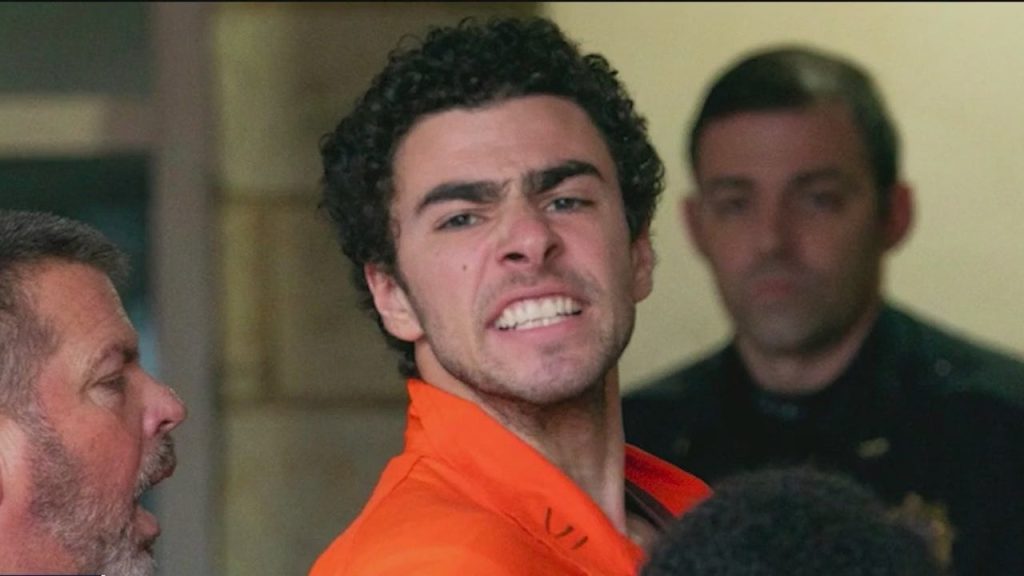‘Free Luigi’ – Support for CEO killer on social media
From hashtags and memes to merchandise like mugs, hats and tote bags featuring slogans like “Mommy’s Little CEO Killer,” social media is buzzing with sympathy for Luigi Mangione.
NEW YORK – Is he a hero? A killer? Both?
About the same time the #FreeLuigi memes featuring the mustachioed plumber from “Super Mario Brothers” mushroomed online this week, commenters shared memes showing Tony Soprano pronouncing Luigi Mangione, the man charged with murdering the UnitedHealthcare CEO in Manhattan, a hero. There were the posts lionizing Mangione’s physique and appearance, the ones speculating about who could play him on “Saturday Night Live,” and the ones denouncing and even threatening people at a Pennsylvania McDonald’s for spotting him and calling police.
It was all too much for Pennsylvania’s governor, a rising Democrat who was nearly the vice presidential nominee this year. Josh Shapiro — who was dealing with a case somewhere else that happened to land in his lap — decried what he saw as growing support for “vigilante justice.”
As with so many American events at this moment in the 21st century, the curious case of Brian Thompson and Luigi Mangione has both captivated and polarized a media-saturated nation.
Luigi Mangione’s journey from Ivy League to murder suspect
Luigi Mangione, an Ivy League graduate from a prominent family, is now at the center of a murder investigation involving United Healthcare CEO Brian Thompson. FOX 5’s Arthur Chi’en takes a closer look at Mangione’s background and possible motives.
The saga offers a glimpse into how, in a connected world, so many different aspects of modern American life can be surreally linked — from public violence to politics, from health care to humor (or attempts at it).
An avenger or a criminal killer?
Mangione’s alleged killing of Thompson has drawn extreme polarized reactions across the internet. Memes and social media posts lionize him, with some comparing him to historical antiheroes like Bonnie and Clyde.
“In this house, Luigi Mangione is a hero, end of story,” one viral post read, garnering millions of views.
However, Pennsylvania Governor Josh Shapiro pushed back against this narrative, warning against glorifying violence. “We do not kill people in cold blood to resolve policy differences or express a viewpoint,” Shapiro said. He praised the citizen who called 911 after spotting Mangione at a McDonald’s, calling them the “real hero” in this case.
Luigi Mangione fights extradition in CEO murder case
The suspect in the killing of UnitedHealthcare’s CEO struggled with deputies and shouted while arriving for a court appearance in Pennsylvania a day after he was arrested at a McDonald’s and charged with murder. Luigi Nicholas Mangione emerged from a patrol car, spun toward reporters and shouted something partly unintelligible while deputies pushed him inside Tuesday. At the brief hearing, the defense lawyer informed the court that Mangione would not waive extradition to New York but instead wants a hearing on the issue. Mangione was denied bail.
Healthcare Executives Beef Up Security
Since Mangione’s arrest, other healthcare executives have increased security measures amid fears they could be targeted next. Companies such as Caresource and Blue Cross have scrubbed executive profiles from their websites, while posters depicting healthcare CEOs as “wanted” have been spotted across the New York City.
Critics cite growing frustrations with health insurance companies as a driving force behind the polarizing public reaction.
“I think the popular support, it’s hard to know whether it’s more than it might have been some years ago but it’s certainly more visible than it would’ve been many years ago,” said Paul Bergman, a professor of law emeritus at the UCLA Law School.
Social Media and Merchandising Fuel the Fire
Support for Mangione has extended to platforms like Etsy and Amazon, where merchandise including mugs, hats, and tote bags featuring slogans like “Mommy’s Little CEO Killer” and “Defend, Deny, Depose” are being sold. A crowdfunding campaign on GiveSendGo set a $200,000 goal for Mangione’s legal defense, raising $40,000 to date after a similar GoFundMe campaign was removed.
Quotes from donors reflect the growing sentiment. One individual contributed $1,300, commenting: “Coincidentally the same amount I was charged for my 100-percent covered medical procedure.”
Another donor wrote, “For my mother—a victim of the insurance industry—Mr. Mangione, thank you for your sacrifice. May others follow in your footsteps of bravery and justice.”
Mangione’s attorney has expressed discomfort with accepting community donations for his legal bills, raising questions about how the funds will be used. According to the online fundraiser, if the money cannot be allocated to Mangione, it will be directed to support other “political prisoners” in the U.S.
The Source: Written in conjunction with the Associated Press.

